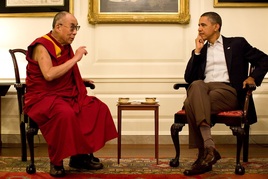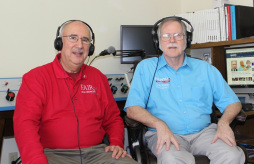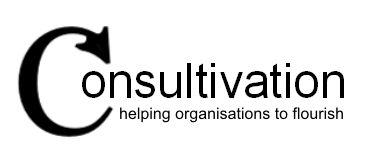|
Homogenous is a kinky & sinister word By Jacqui Tibbits, Consultivation Director I was sitting in a room of almost 100 people who were predominantly aged 60 years and older. I was there to listen to their needs, concerns and ideas. During the event I heard a politician refer to the 60 years and over population as ‘not a homogenous lot’. Yes this is true I thought to myself and too often policy, services and advertising groups everyone together. However the politician continued with a laugh saying, ‘It’s o’kay, homogenous is not a kinky or sinister word. Look it up and then you will know what it means.” What did this mean? 1. Did it imply words beginning with a prefix of ‘homo’ are kinky and sinister? Like what for example? Homosexual? 2. Was this person exhibiting their own ageist view and stereotypes to assume the audience wouldn’t know what homogenous means so they would have to look it up in a dictionary?  In this day and age, this type of behaviour and leadership is unacceptable. It is not funny or a joke. Words are powerful – they start and stop wars, progress and cease free trade agreements, contribute to dynamic and toxic work environments and influence family cohesion. Words can heal a person with a broken heart, help a person from feeling down and motivate a person to attain their goals but equally words can quickly unravel a relationship between strangers, business associates, colleagues, friends and family. People who are gay and lesbian are not kinky or sinister. Some of their behaviour may be but so may heterosexuals, trans people, bisexual people and intersex people. I may be drawing a conclusion greater than what was intended by the politician but on a review of over 100 words starting with the prefix of ‘homo’ there are not many which are used in common conversation unless perhaps you work in a medical or science setting. Gay men and lesbian women have been persecuted for too long. Western Australia only decriminalised sex between consenting adult men in private in 1989. A sense of perversion and persecution are long standing and it is time for this harassment to stop. Regardless of gender identity, sexual orientation or personal pleasuring preferences - all the people in the room were treated as uneducated – an inference was drawn that we would not know what homogeneous meant. With the majority of the audience being older Australian adults this could be considered a blatant, unfounded stereotype of older people.  The older adults in the audience who shared their thoughts wanted to be heard, to stay active and healthy and connected to people and places important to them. They wanted to be seen in positive terms, treated with respect and as people who are contributing to society – through innovation, working, volunteering and raising grandchildren and not to be bullied by any individual, group of people or organisation. However the vision these older people want is impacted by ageing stereotypes which exist in our society and which were on display in front of me. These stereotypes greatly influence how older adults see themselves and other older people. Research completed by Dionigi (2015) concluded stereotypes of ageing have enabling and constraining effects on older adults in all areas of their health. We can contribute to a better life and a better world by being conscious of what we say. Consultivation can assist organisations and workers with audits, workplace pulse checks and changing systemic bias, stereotypes and discrimination. One of the workshops we offer is Ageing, Wellness and Stereotypes. This workshop is interactive exploring older adult’s needs and wants, the stereotypes which exist and those we may inadvertently harbour which impact on their needs and wants. Participants also look at how stereotypes impact on older people and what they can all do to be catalysts for positive change. I am a strong believer in the power of language, and as George Orwell wrote, ‘If thoughts corrupt language, language can also corrupt thought’. The irony is he was also writing about politicians at the time. Consultivation is an independent, ethics led business consultancy organisation. We work across all industries however has a passion for and expert knowledge in ageing and aged care, community services and community development. Sources: Pictures: Pixabay Logo: Consultivation Dionigi, R. A. (2015). Stereotypes of Ageing: Their Effects on the Health of Older Adults. Journal of Geriatrics. Orwell, G (1946). Politics and the English Language.
0 Comments
Your comment will be posted after it is approved.
Leave a Reply. |
Jacqui TibbitsJacqui is a positive change management specialist with a penchant for public speaking. Susan JohnsonSusan has expertise in cognitive behaviour therapy, narrative therapy & mindfulness. Guest bloggersGuest bloggers are invited to contribute to the Consultivation blog. If you have an idea, concept or perspective you would like to share please contact Jacqui at Consultivation.
"Consultivation delivers topics skilfully and clearly."
Workshop participant "I have a better understanding of what impacts the aged care changes are going to have on our clients and business." Michelle
"Consultivation delivers topics skillfully and clearly. The knowledge gained will give me guidance in doing my job and keeping up the goodwork." Mario
"Thanks to Consultivation I understand that changes are on-going in the organisation and sector to keep clients in their homes longer."
Nancy "Due to today's training I will be more open minded with staff and pull together and ask for help to improve when needed."
Carol Archives
June 2020
Categories
All
|




 RSS Feed
RSS Feed
